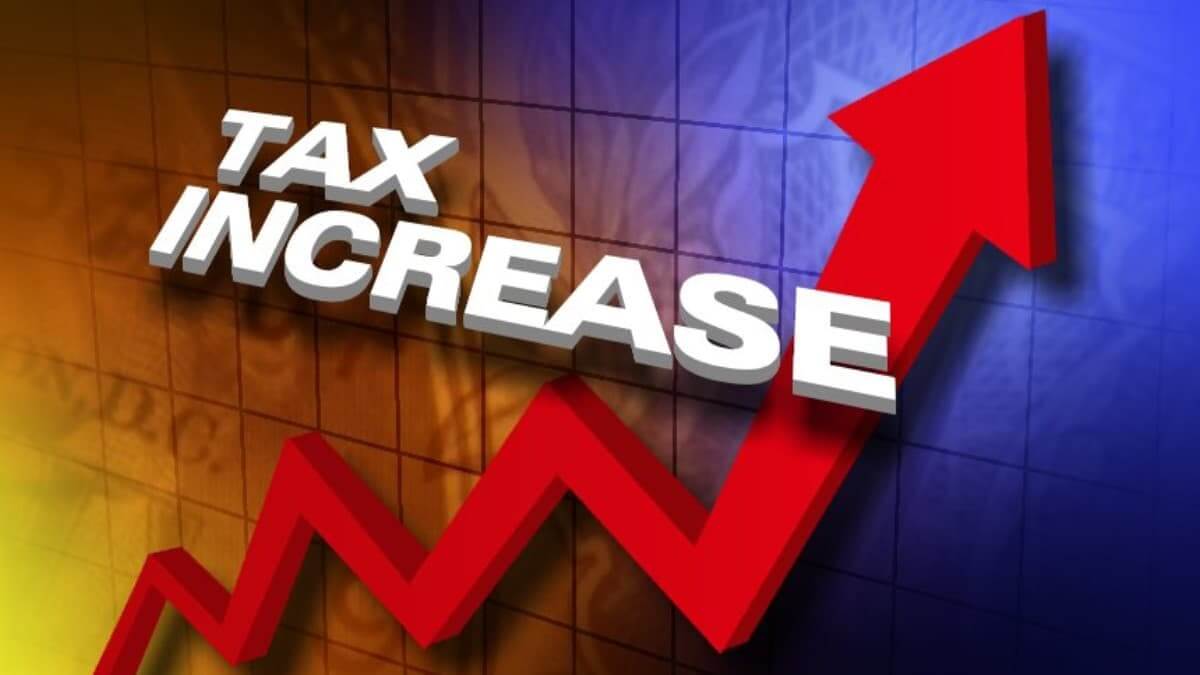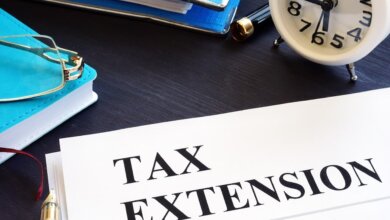Tax Hike

Contents
The government is considering a tax hike for millions of Americans, including the middle-class and lower-income groups. While most people oppose such taxes, some are concerned that they will increase prices.
Increases taxes on millions of Americans
If the GOP tax plan passes, millions of Americans will see increased taxes. The program is estimated to increase the federal taxes individuals pay by $23.5 billion. This is only a fraction of the total increase, but it will affect many people.
The bill includes energy-related tax credits. These credits are aimed at reducing the carbon emissions of companies and homeowners. It also provides tax credits for the purchase of electric vehicles.
A recent poll showed that two-thirds of Americans support raising taxes on the wealthy. However, the average per-capita tax hike was only $391 for those living at or below the poverty level.
The bill would also raise taxes on capital-intensive businesses. Those businesses could experience significant losses because of lower investment and wages.
Half of the country pays payroll and state and local taxes. Another half pays sales and Social Security taxes.
There are many reasons to raise taxes on high-income households. One reason is that higher incomes reduce incentives to work. Higher taxes on the rich would also increase the incentives for employers to offer untaxed benefits to employees.
Ultimately, the bill’s effects are highly distinctive, depending on how taxpayers behave. For instance, some low-income households may receive a tax subsidy to buy private health insurance on the ACA exchange. But others will not.
Overall, the impact on the economy is expected to be minimal. According to independent experts, the bill’s tax benefits will cancel most of the adverse effects.
One of the reasons that the bill passed is that the Senate Democrats passed an amendment to the bill before final passage. Republicans voted for the original bill but are now voting against the amended version.
Higher taxes on the highest earners
Higher taxes on the wealthiest Americans would raise less money for the government and reduce the incentives for higher earners to work. These side effects include a slowing economy, fewer investments, and more creative tax avoidance strategies. However, most of the public agrees that wealthy Americans should pay a fair share of taxes.
The Gallup poll has been asking the question for decades, and the results have been consistent. Six in 10 Americans say that upper-income earners pay too little in taxes. And a recent NPR/PBS NewsHour/Marist poll found that 62 percent of the general public supports a higher tax rate on income over $1 million.
A recent study from the Congressional Budget Office estimated that the top 0.1 percent of households had an average Federal individual income tax rate of 23 percent for the next three years. Taxpayers in this category have an average income of over $600,000 per year.
The IRS data shows that the 400 highest-income Americans have an average annual income of $110 million. They are exempt from the Social Security tax and the Medicare tax.
Another study estimated that the Federal individual income tax rate for the wealthiest 0.1 percent of families in 2024 would be about 25 percent. This means that the income of this group is a little over a fifth of the national total.
Although some tax rates are on the wealthiest, the exact amount is unknown. Some advocates argue that this is a revenue-generating measure. Others say that it is administratively simple.
The Joint Committee on Taxation estimates that the Democrat’s reckless tax-and-spend proposal would increase taxes on millions of American families. It would raise approximately $16.7 billion in the next three years.
Higher taxes on labor
Labor income taxation has become a primary source of public sector funds in many developed nations. These taxes are not only a burden on the private sector but can also reduce the demand for labor. This is because the higher taxes on work, the less attractive it is to be employed. However, this effect is expected. It depends on whether employers bear the costs of the increase in labor prices.
In general, taxes on labor income are not as taxing as those on capital. While high taxes on capital can lower the marginal product of money, they can also make investments more expensive. Likewise, they can decrease the incentive to accumulate and grow.
On the other hand, taxing wealth could lead to higher economic growth, which benefits both consumers and employers. As such, it is a worthy governmental goal.
The optimal wealth-tax economy delivers better overall economic well-being than the optimal capital-income-tax economy. This is because the distribution of consumption is more equal under the latter.
The governmental decision to tax wealth is more complex than it might sound. One of the most significant factors determining how taxing the rich affect economic growth is the price elasticity of the labor supply.
A panel regression equation was devised to determine the relationship between variables in 13 OECD countries. The resulting model indicates that higher taxes on labor income produce the following statistically significant effects:
- A 1.7 percent increase in unemployment
- A 0.4 percentage point decrease in EU growth
- A 2.4 percent increase in the GDP as a share of total national expenditures
Some other factors can influence the impact of taxation on economic growth. High levels of coordination, for example, can help muffle the adverse effects of higher labor taxes. Alternatively, the fiscal devaluation of the economy can redress the balance by reducing non-wage labor costs.
Increases taxes on lower income groups
Determining which tax changes are most beneficial to the American people is challenging. Several popular options don’t help low-income families and make little difference.
One of the best ways to find out is to examine the average tax change for different income groups. The Joint Committee on Taxation (JCT) did this and found that the average tax change for low-income households is less than $180.
In addition, the Joint Committee found that the overall bill would produce a net tax cut starting in 2027. Moreover, the bill includes some climate provisions, including tax credits for energy efficiency improvements and renewable energy equipment.
Some of the most significant benefits for lower-income families are the expansion of the Earned Income Tax Credit and the refundable payroll tax credit. These two provisions alone are worth at least $100.
Meanwhile, the most considerable tax increase for middle-income households is for corporations. This increase will not benefit all Americans. Most companies will pass it on to their employees in the form of lowered wages and lower returns for investors.
While it is true that most low-income families pay little or no federal income taxes, the fact remains that the majority of the population pays substantial state and local taxes. Additionally, most low-income families need health insurance. That means they won’t feel the effects of the new tax changes like they will feel the impact of the payroll tax.
But how will the new bill’s tax changes affect those with health insurance? In addition to the tax credit, a new provision for Medicare will allow the federal government to negotiate drug prices with drugmakers.
Increases taxes on singles in 2024
The Internal Revenue Service has announced adjustments for the tax year 2024, including an increase in the standard deduction for single filers. In addition, the IRS will adjust income thresholds to help reduce “bracket creep” due to inflation.
A significant portion of these tax changes will benefit taxpayers with low to middle incomes. This will make the average tax rate for nearly every income category higher. However, the IRS is raising the top limits in some brackets.
Those who have a taxable income above $447,850 in 2024 will be subject to the top rate of 37 percent. Married couples filing jointly will have a tax rate of 37% if their income exceeds $647,850.
There are five other tax rates in effect for the 2024 tax year. Singles and married couples filing jointly are taxed on the first $22,000 of their income, and the lowest marginal rate applies to individuals below $11,000.
Tax rates on capital gains are different from earned income. If the income exceeds the taxable threshold, 15% of the profit is subject to capital gains taxes.
Singles and married couples filing jointly are also eligible for a standard deduction that increases to $25,900. For 2024, the Chained Consumer Price Index (CCPI) was increased by 6.2%.
For the tax year 2024, the IRS adjusted more than 60 tax provisions. These adjustments include changes to individual income tax brackets, the standard deduction, the alternative minimum, and the estate tax.
In addition to the IRS changes, many states are also making changes. Twenty-one states will have significant tax changes in effect in 2024. Some of these changes involve unwinding previous ballot measures. Others are responses to pandemic uncertainty or budget surpluses.
A tax hike in 2024 is expected to happen as President Biden wants to include an increase in taxes for the first time since 1993. What this means is taxes will increase, but it may not directly affect those who are in the middle class and lower – even the upper-middle class may not be affected.
There are talks in new brackets above the 37 percent bracket with adjustments to the last five bracket which includes the 37 percent, 35 percent, 32 percent, 24 percent, and 22 percent brackets. This can surely increase taxes but as stated, you may not be affected if you’re earning less than $100,000 or so.
When is the tax hike in 2024?
There is no definitive answer to when the tax hike will take place. The tax hike may be affected starting from the 2024 tax season. However, many of the changes that came with the Tax Cuts and Jobs Act of 2017 will remain until 2025. So most of the things that came with it will stay the same such as the high standard deduction, elimination of exemptions, and increased tax credits.
A tax hike will mean more in tax revenue but if you’re wondering about on what scale you’ll be affected, know that it depends on your income. If you’re earning a high income, the chances of paying more tax are very likely. If you’re earning low to moderate-income though, it’s next to impossible that you will be affected by the upcoming 2024 Biden’s tax hike.





